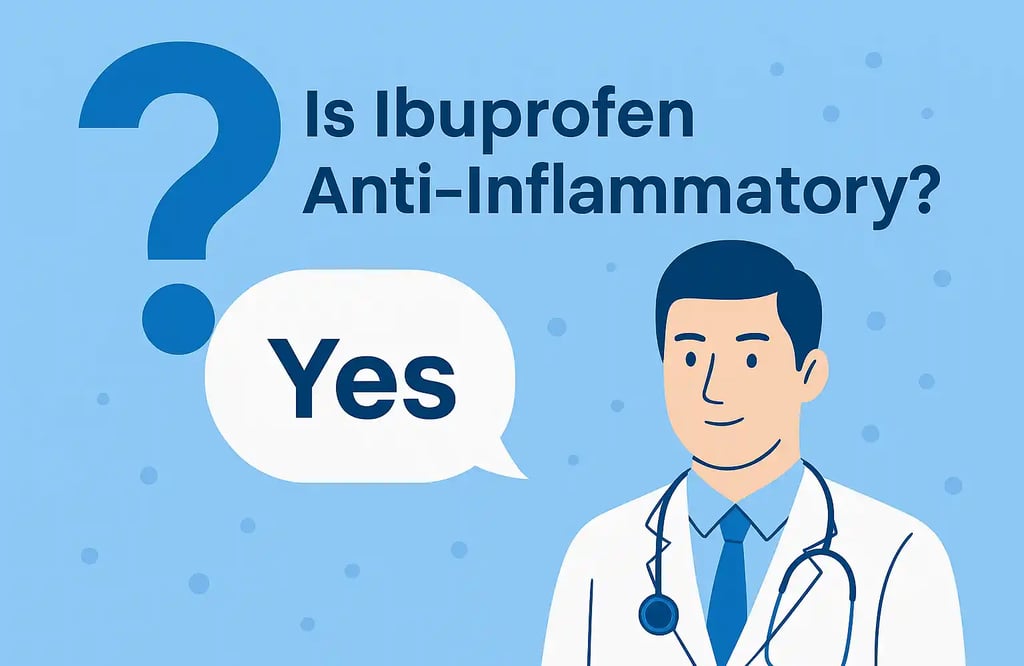Is Ibuprofen anti-inflammatory?
Ibuprofen is a proven anti-inflammatory NSAID that helps reduce pain, swelling, and fever. Learn how it works and when it’s most effective.


Is Ibuprofen Anti-Inflammatory?
Yes — ibuprofen is classified as a nonsteroidal anti-inflammatory drug (NSAID), meaning it works by reducing inflammation in the body. This makes it useful for treating swelling, pain, and fever caused by conditions like arthritis, sprains, menstrual cramps, and more.
Ibuprofen blocks enzymes (COX-1 and COX-2) that create prostaglandins, which are chemicals that trigger inflammation, pain, and fever. By lowering prostaglandin levels, ibuprofen helps relieve pain and inflammation at the source.
FAQ
How fast does ibuprofen reduce inflammation?
Ibuprofen starts to relieve pain within 30 to 60 minutes, but it may take several hours to reduce visible swelling or inflammation, depending on the condition being treated.
Is ibuprofen better than acetaminophen for inflammation?
Yes. Acetaminophen relieves pain and fever but does not reduce inflammation. Ibuprofen is better for conditions involving swelling or joint pain. For more detailed information on Ibuprofen v. Tylenol, click here.
Can I take ibuprofen for chronic inflammation?
It can help in the short term, but daily or long-term use should only be done under medical supervision. Chronic use increases the risk of stomach ulcers, kidney damage, and heart issues.
Is ibuprofen good for sports injuries?
Yes. It’s commonly used for sports-related inflammation, such as sprains, strains, and muscle soreness. However, it should be used for only a few days unless otherwise directed.
Does ibuprofen reduce inflammation from infections?
It may help relieve swelling and pain from inflammation, but it does not treat the infection itself. Always check with a healthcare provider when dealing with infections.
Disclaimer
This page summarizes information from trusted medical sources and is provided for general knowledge only. lt is not medical advice; Always consult your doctor or pharmacist for personal medical guidance (For a more comprehensive explanation please see the full disclaimer).
Resources
The information above has been gathered from several reputable sources, including the following:
[1] Mayo Clinic – Ibuprofen (Oral Route)
[2] MedlinePlus – Ibuprofen
[3] FDA – Ibuprofen Drug Safety Information


